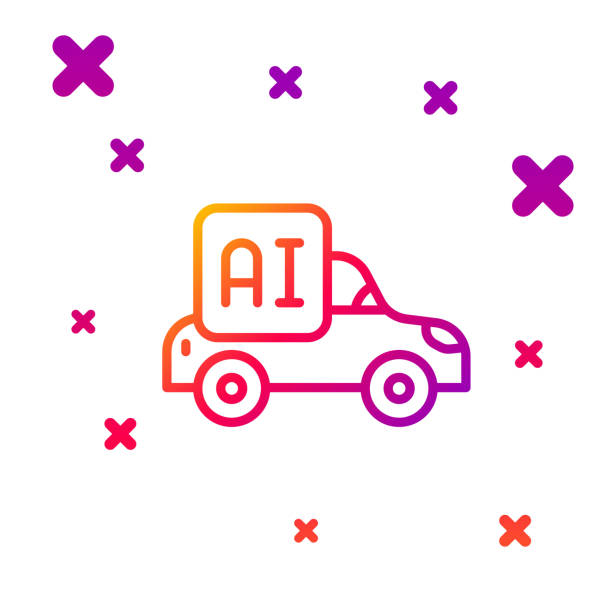Self-driving cars are no longer just a futuristic concept — they’re on the roads today, promising safer and more efficient transportation. But what happens when artificial intelligence (AI) makes a mistake and causes an accident? Determining who’s at fault in these situations is far from simple. If you or a loved one has been involved in a crash with a self-driving car, speaking with a New Jersey auto accident attorney is a crucial first step in understanding your rights and options.
Who Is Liable When AI Causes an Accident?
In a typical car accident, liability usually falls on one of the drivers. But with self-driving vehicles, the lines are blurred. The AI system — essentially the “driver” of the car — may malfunction or make a flawed decision, leading to a crash. So, who’s responsible?
The blame could rest with multiple parties, including:
- The Car Manufacturer: If a design flaw or software glitch caused the accident, the manufacturer might be held liable.
- The AI Software Developer: Sometimes, the fault lies with the tech company responsible for the car’s autonomous driving software.
- The Vehicle Owner: In certain cases, if the owner failed to update the car’s software or ignored maintenance requirements, they could share responsibility.
Because these cases are complex, having legal guidance helps sort out who should be held accountable.
AI Errors vs. Human Errors: Understanding the Difference
Human drivers make mistakes — distracted driving, speeding, and reckless behavior cause most accidents. Self-driving cars, on the other hand, rely on sensors, cameras, and algorithms to make decisions in real time. But AI isn’t perfect.
Self-driving cars can misinterpret road signs, fail to recognize pedestrians or struggle with unpredictable weather conditions. A famous example is when a self-driving car in Arizona struck and killed a pedestrian in 2018, raising urgent questions about AI reliability. These accidents highlight the reality that AI errors are fundamentally different from human mistakes — and that means liability is approached from a different angle.
How the Law Handles Self-Driving Car Accidents
Laws surrounding self-driving cars are still evolving. As of now, there’s no universal legal standard for how AI-related car accidents are handled — it often depends on the state.
In New Jersey, auto accident liability traditionally hinges on negligence. When AI is involved, the focus shifts to product liability laws. This means lawyers may argue that a car’s manufacturer or software developer was negligent in designing, programming, or testing the autonomous system.
Courts may also examine whether the vehicle owner maintained the car properly — updating software, for instance — before deciding fault. Without clear legal precedents, every case is a battle of facts, technology, and legal interpretation.
For those navigating these murky waters, partnering with a skilled New Jersey auto accident attorney ensures you have a strong advocate by your side.
Real-World Examples: When AI Goes Wrong
Self-driving car crashes aren’t just hypothetical. Companies like Tesla and Waymo have faced high-profile incidents where AI-driven vehicles caused or contributed to accidents.
In one case, a Tesla Model X in “Autopilot” mode collided with a highway divider in California, killing the driver. Investigations later revealed that the AI failed to detect the obstacle, raising concerns about the limits of autonomous technology.
Another incident involved an Uber self-driving car in Arizona, which failed to recognize a pedestrian crossing the road at night. The tragedy resulted in Uber halting its autonomous vehicle testing for months.
These real-world cases underline a sobering truth: while AI aims to reduce accidents, it is not immune to failure — and victims deserve justice when technology falls short.
Looking Ahead: The Future of AI and Auto Accident Law
As AI technology advances, laws must catch up. There’s growing momentum for clearer regulations that address self-driving car liability, with some experts pushing for federal oversight.
Major companies like Google and Tesla continue to refine their AI systems, aiming to make autonomous vehicles safer. However, until the technology is flawless — and the laws are solidified — accidents will happen, and victims will need legal support to secure fair compensation.
A report from the National Highway Traffic Safety Administration (NHTSA) shows that over 100 self-driving car crashes have been reported in the U.S. — a sobering reminder that we’re still ironing out AI’s role on the road.
Conclusion: Protect Yourself When AI Fails
Self-driving cars might be the future, but AI errors can still cause serious accidents today. If you’re hurt in a crash involving an autonomous vehicle, figuring out who’s at fault — whether it’s the manufacturer, software developer, or owner — is complicated. Don’t navigate this legal maze alone.
Get the help you need from a New Jersey auto accident attorney who understands both AI technology and personal injury law. They’ll fight to hold the right parties accountable and get you the compensation you deserve.


